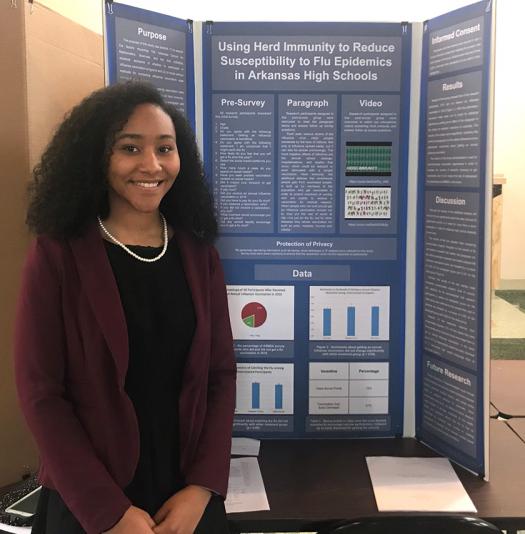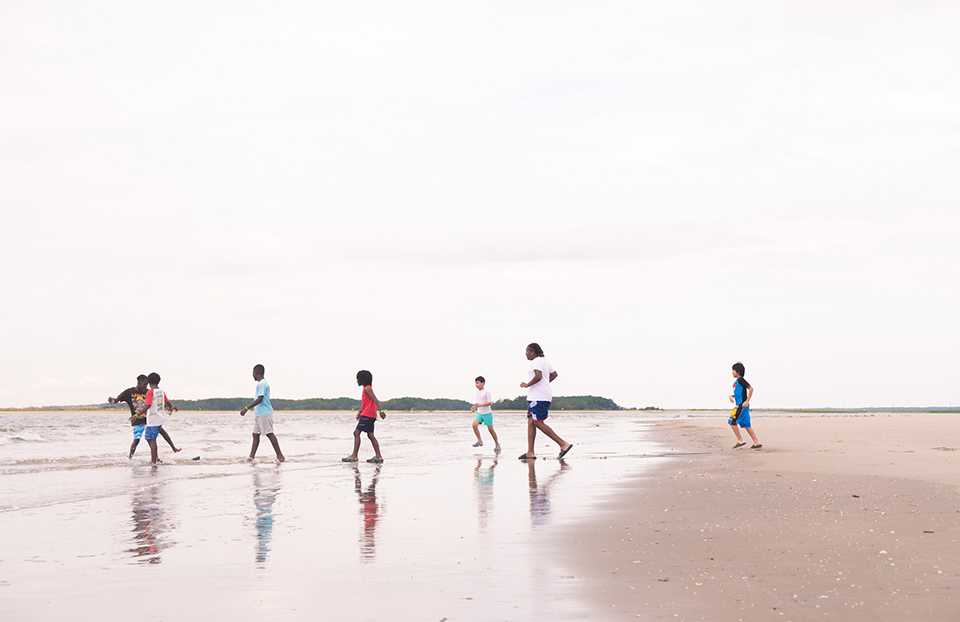STEM Outreach, Young & Amazing
Providing incentives for vaccination can keep infection down

With all the germs floating around, getting sick in school is inevitable. Jessica Nunn, a high school student at Arkansas School for Mathematics, Sciences, and the Arts (ASMSA) describes schools as “melting pots” for infections. She became interested in STEM as a toddler, when she first learned about pediatricians. “I’ve always wanted to work in health and medicine. People in the health professions were always available to help when people needed it most,” Jessica said.
Jessica’s passion for medicine and concerns about her school’s community health led her to survey her peers to see if they had received influenza vaccinations. She first became interested in medicine as a toddler, when she learned about pediatricians. “I’ve always wanted to work in health and medicine. People in health professions were always available to help when I needed it most,” Jessica said.
The school survey revealed that there was an alarmingly low vaccination rate among the students. She explored what it would take to reach the herd immunity threshold, which protects a community from disease by immunizing a critical mass of the population, for flu vaccinations. “My goal was to educate the student population on how herd immunity helps populations, and what steps they could take to reach it,” she said.
My goal was to educate the student population on how herd immunity helps populations.
The student poll showed that Jessica’s classmates wanted incentives, such as class bonus points or early dismissal from school, to encourage them to get vaccinated.
Jessica’s worries about these findings steered her to work with the school administration to offer students bonus points for successfully providing documentation of receiving their annual flu vaccination. “I also talked with my school nurse about having more literature about herd immunity and how it helps the community,” she said.
For her efforts, Jessica was selected by her local science fair for recognition as a Society for Science & the Public Community Innovation Award winner. This award honors students participating in science fairs around the world who are making a difference in their communities. In 2018, the Society rewarded 24 young scientists with $500 prizes — and Jessica was one of them. “Receiving this award was truly an honor and a surprise. It means more that someone saw the potential in my project to help others,” she said.
Never let the presuppositions that others have about your abilities affect you reaching your full potential.
Jessica believes that science fairs can cultivate professional skills like public speaking. “They help people come together to learn from each other and gain knowledge about STEM research and innovation,” she said. She plans to major in natural sciences in college, and enter a pre-medicine track.


